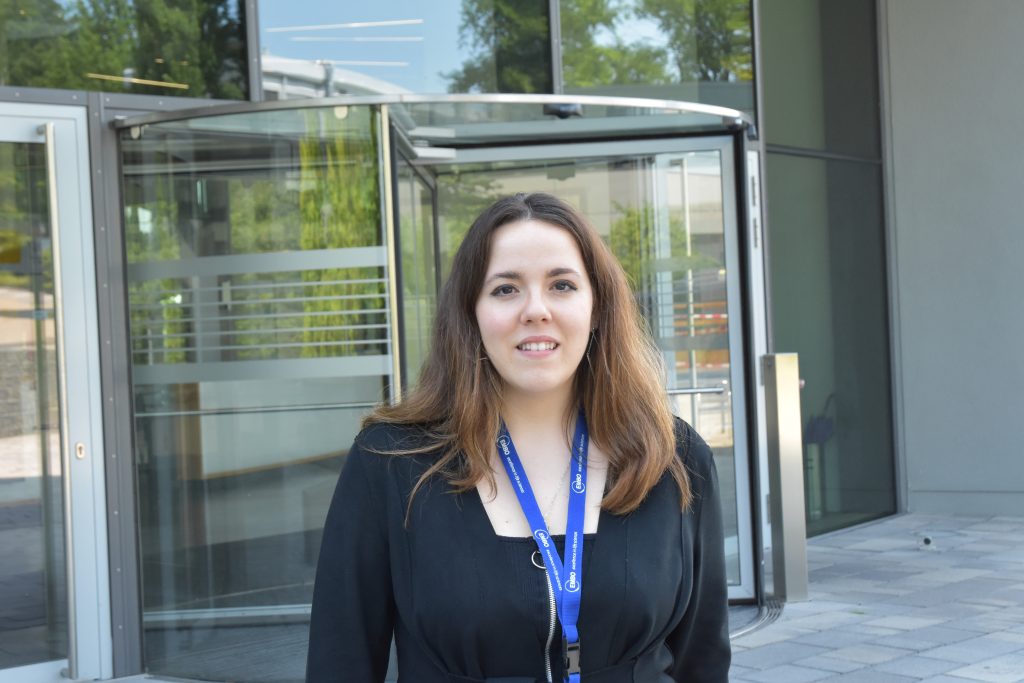Meet the Trainer – Estefanía Lozano-Andrés
Meet Estefanía Lozano-Andrés, a Marie Sklodowska-Curie PhD Candidate at the University of Utrecht in the Netherlands. We first met Estefanía in 2016 when she was a participant at the EMBL Course “Extracellular Vesicles: from Biology to Biomedical Applications” and she is back as a trainer at this year’s course.
What is your research focus, and what challenges is the field facing?
My main research interest is the study of Extracellular Vesicles (EVs), which are nano-sized membrane-enclosed particles released by cells. EVs contain selected proteins, lipids and nucleic acids that reflect the status and origin of cells, making them very attractive for biomarker profiling. However, their small size hampers robust detection of single EVs, so more sensitive technology needs to be developed to truly exploit the potential of EVs. Particularly, I am interested in the use of flow cytometry to analyse EVs in a high-throughput and multiparametric manner, but there are quite some challenges to overcome like the optimisation of EV-labelling strategies, the development of reference materials and the standardisation of measurements.
You attended the EMBL Course on Extracellular Vesicles 3 years ago and now you are one of the trainers in this year’s course. How has the course influenced your career?
The course had a great impact on my scientific career. When I was selected to attend the course, I was at an early stage of my PhD and it helped me to develop as a scientist and to have a more critical eye. Thanks to the course I met many leading researchers in the field and it’s probably one of the reasons why I am currently a Marie Skłodowska-Curie Early Stage Researcher within the TRAIN-EV Consortium, which brings together leading European scientists working on EVs (grant agreement No 722148). I was thrilled to know that this year I could attend the course as a trainer to help all the participants during the practical sessions and to shed some light on the use of flow cytometry for EV analysis.
What is your number one tip for people looking for scientific training?
Don’t be afraid to engage with people, it can really help you to find out about great training opportunities that could further improve your career. And always try to make the most out of any given moment.
If you weren’t a scientist, what would you be?
A multifaceted artist, I love creating things. Painting, writing and photography make me very happy. Fun fact: when I was a child I wanted to be a professional gift wrapper.
If you were a superhero what power would you have?
Teleportation, I would really enjoy to travel across space (and time).
